Like most small rodents, guinea pig reproduction is rapid and ongoing when left unchecked. However, pregnancy in guinea pigs is not without concerns. This is a medical condition that should be diagnosed and monitored with care to ensure that both the mother and the litter are healthy.
Any time intact female and male guinea pigs are together pregnancy is a possibility. Many guinea pig parents don’t intend to purchase a pregnant guinea pig or cause a pregnancy, but regardless of your intentions, it is important to be prepared for this possibility. Let's take a look at some of the key points for pregnancy in guinea pigs so you can determine if your guinea pig is going to be a mother and so you can plan accordingly.

At What Age Can a Guinea Pig Get Pregnant?
Female guinea pigs become sexually mature at two to four months old, but both males and females can mature earlier in some cases. They can also become fertile at any time of the year, though estrous is most common in the spring. The rapid sexual maturity in this species and difficulty in determining the difference between males and females at a young age can result in accidental breeding.
It is not uncommon for guinea pig owners to mistakenly pair intact males and females together thinking they are the same sex. Pet stores and inexperienced breeders may also make this mistake, or guinea pigs may mature faster than expected. The result is unexpected pregnancies.
Two months may seem young, but it is actually best for a guinea pig to become pregnant before 8 months of age if they are being intentionally bred. We will discuss why when it comes to complications or concerns with pregnancy.
Signs of Pregnancy in Guinea Pigs
How can you tell when a guinea pig is pregnant, and how long are guinea pigs pregnant for? Early in their pregnancy, guinea pigs may not look or act much differently. The typical gestation period for this species is 59 to 70 days, so by the time guinea pigs start to show a larger abdomen they may be well into their pregnancy.
Aside from a large abdomen, there are very few ways to confidently determine if a guinea pig is pregnant on your own. If you notice your guinea pig rapidly putting on weight or have housed a female with a male, it is worth visiting a vet.
Veterinarians who are experienced with exotics and pocket pets, like guinea pigs, are able to diagnose pregnancy through ultrasound. There may also be cases in which they can estimate how far along a pregnancy is and how many babies can be expected using x-rays or palpation of the abdomen.
Knowing if a guinea pig is pregnant and how many babies to expect is crucial when it comes to planning a successful pregnancy. Establishing your pet with a veterinarian also makes it easier to seek professional help in case any complications arise before, during, or after the birthing process.

How to Care For a Pregnant Guinea Pig
Pregnant guinea pigs have a few extra requirements. To start, you will want to separate a pregnant female from males, especially as it gets closer to the end of her pregnancy since she can become pregnant again immediately after giving birth. Gestation and lactation take a lot of nutrients and energy, so it is not the best idea to allow continuous pregnancies.
Pregnant guinea pigs should be fed a mixed diet of grass hay, vitamin C, nutritionally balanced commercial guinea pig food, and plenty of calcium-rich greens. It is also recommended that pregnant guinea pigs get nutrient rich treats such as our GuineaDad pea flakes. If this diet requires you to make changes to your guinea pig’s current diet, do it gradually.
The goal is to maximize nutrition and minimize stress. Providing a secure and clean hiding space is also ideal so your guinea pig has somewhere to nest when the babies arrive.
Complications or Concerns With Pregnancy in Guinea Pigs
Concerns with pregnancy in guinea pigs can be noted early on. One of the most impactful and easy to predict is difficulty giving birth, also known as dystocia, in guinea pigs whose first pregnancy is past 8 months old. At 8 months of age, a guinea pig’s pelvic bones begin to fuse and become far less flexible resulting in a more complicated pregnancy and possibly requiring a cesarian. If a guineapig is bred before 8 months of age their pelvis stays flexible enough to give birth.
Dystocia can also happen for many other reasons. Typically the birthing process happens over 30 minutes with 5-minute intervals between the 2 to 4 pups being born. If it takes longer than this for your guinea pig to give birth or the number of pups born doesn’t match what your veterinarian expected, then they should be brought for medical assistance.
Even if the birthing process is successful, there is still room for risk. Pregnancy toxemia is a condition that starts with a refusal to eat or drink and quickly matures into muscle twitching and seizures. It is a condition in which blood calcium is low but blood pressure is high and it generally occurs after birth. If left untreated it is normally fatal and even when treatment is given the outlook can still be poor.
The best treatment for pregnancy toxemia is actually prevention. Feeding a well-balanced diet with plenty of calcium is great for avoiding calcium lows. The most at-risk individuals are those who are overweight or have already had one litter, so it is important to maintain a healthy pregnancy weight and avoid overbreeding.
The next most common concern is mastitis. This is an infection of the mammary glands that can happen to any lactating mammal. This condition is identifiable by swollen, inflamed, and painful mammary glands that may produce blood in the milk. It is treatable with proper medical care and should be taken seriously. If the infection is allowed to continue untreated it can be fatal to both the sow and her pups.
How Can You Prevent a Guinea Pig From Getting Pregnant?
In many cases, it may be best to prevent pregnancy for the sake of your guinea pig’s health and issues with rehousing multiple litters. One of the simplest options is to separate guinea pigs based on sex, but social hierarchies may not make this the most preferable pairing for your guinea pigs.
The alternative option is to have your guinea pigs spayed or neutered. Neutering a male is less invasive than spaying a female, but all small rodent surgeries have their risks. Spaying and neutering are usually not recommended as any surgery on small animals can lead to potentially life threatening complications. If you are looking to get a guinea pig fixed it is best to seek out a trusted veterinarian with plenty of experience conducting surgeries on small rodents.
Click to learn more about the difference between male and female guinea pigs and how to keep your piggies happy :)


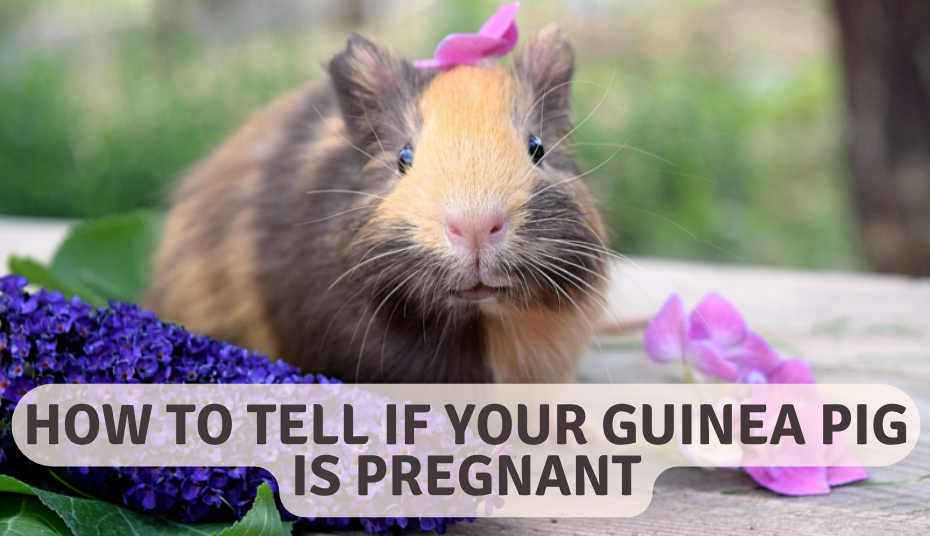




















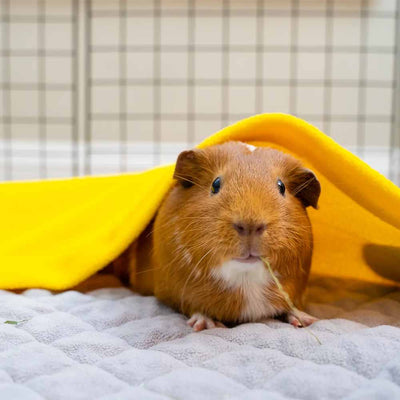
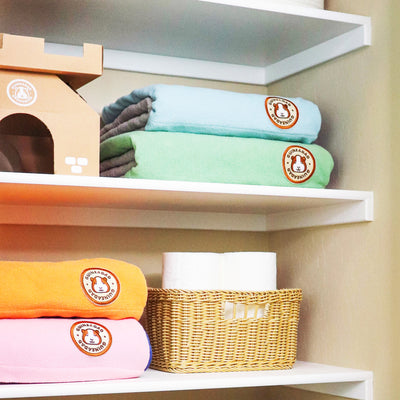































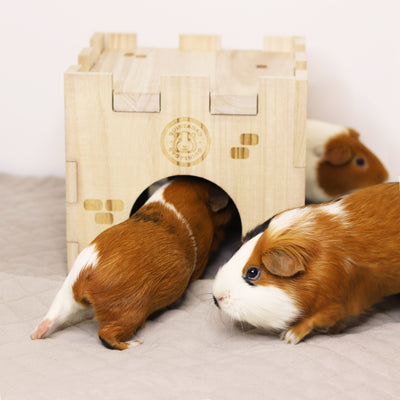
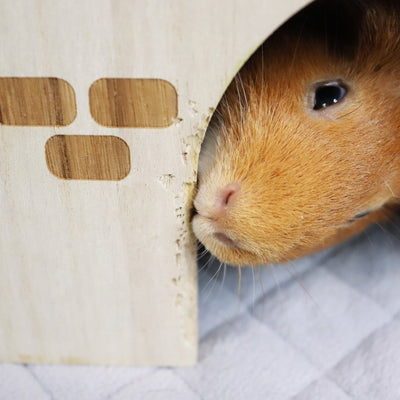










7 comments
Do you sell Guinea 🐷s?
I think my little pig is pregnant she is really good looking and I think we should breed ours together I live in Tasmania
Cool 🐷
Hi how do you know if my Guinea pig is pregnant
Think it’s important to mention that female guinea pigs can become fertile as frequently as every 16 days.